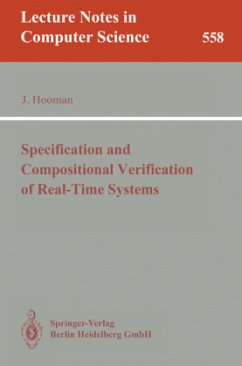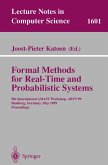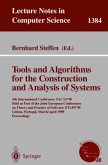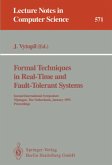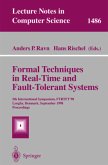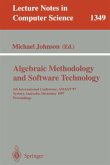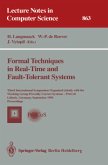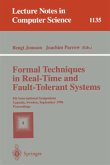The research described in this monograph concerns the formalspecification and compositional verification of real-timesystems. A real-time programminglanguage is considered inwhich concurrent processes communicate by synchronousmessage passing along unidirectional channels. To specifiyfunctional and timing properties of programs, two formalismsare investigated: one using a real-time version of temporallogic, called Metric Temporal Logic, and another which isbasedon extended Hoare triples. Metric Temporal Logicprovides a concise notationto express timing properties andto axiomatize the programming language, whereas Hoare-styleformulae are especially convenient for the verification ofsequential constructs. For both approaches a compositionalproof system has been formulated to verify that a programsatisfies a specification. To deduce timing properties ofprograms, first maximal parallelism is assumed, modeling thesituation in which each process has itsown processor. Next,this model is generalized to multiprogramming where severalprocesses may share a processor and scheduling is based onpriorities. The proof systems are shown to be sound andrelatively complete with respect to a denotational semanticsof the programming language. The theory is illustrated by anexample of a watchdog timer.
Hinweis: Dieser Artikel kann nur an eine deutsche Lieferadresse ausgeliefert werden.
Hinweis: Dieser Artikel kann nur an eine deutsche Lieferadresse ausgeliefert werden.

